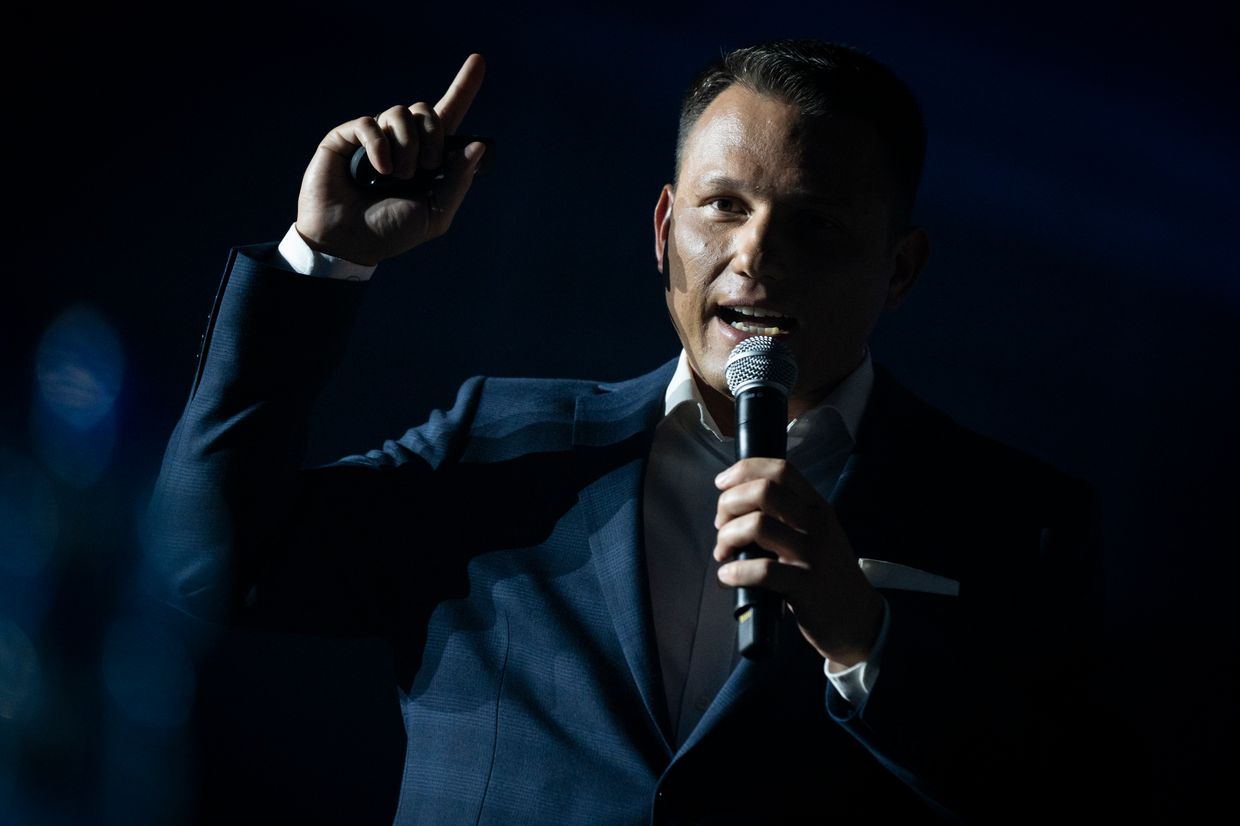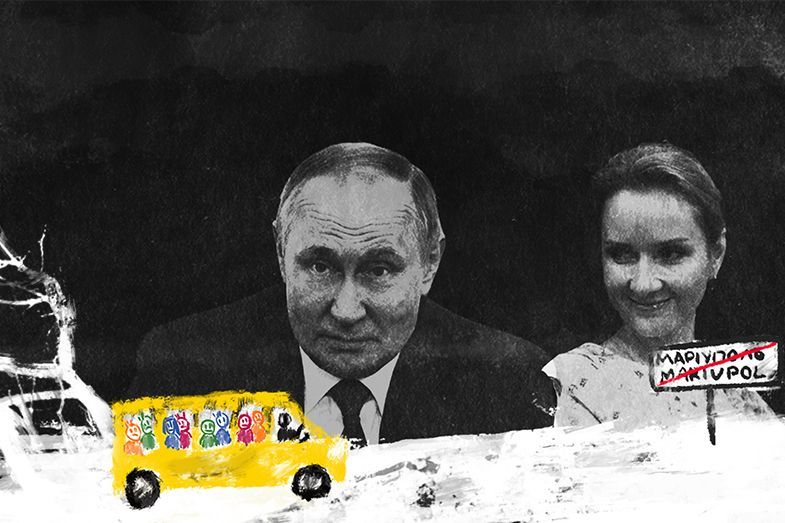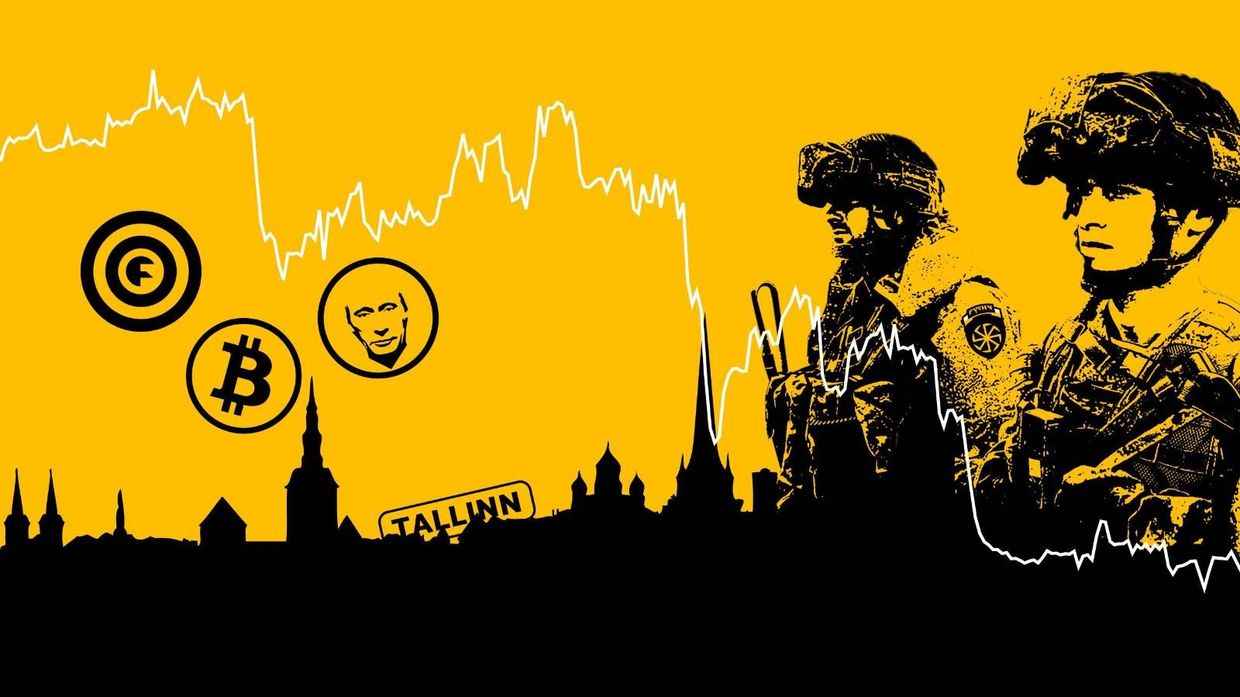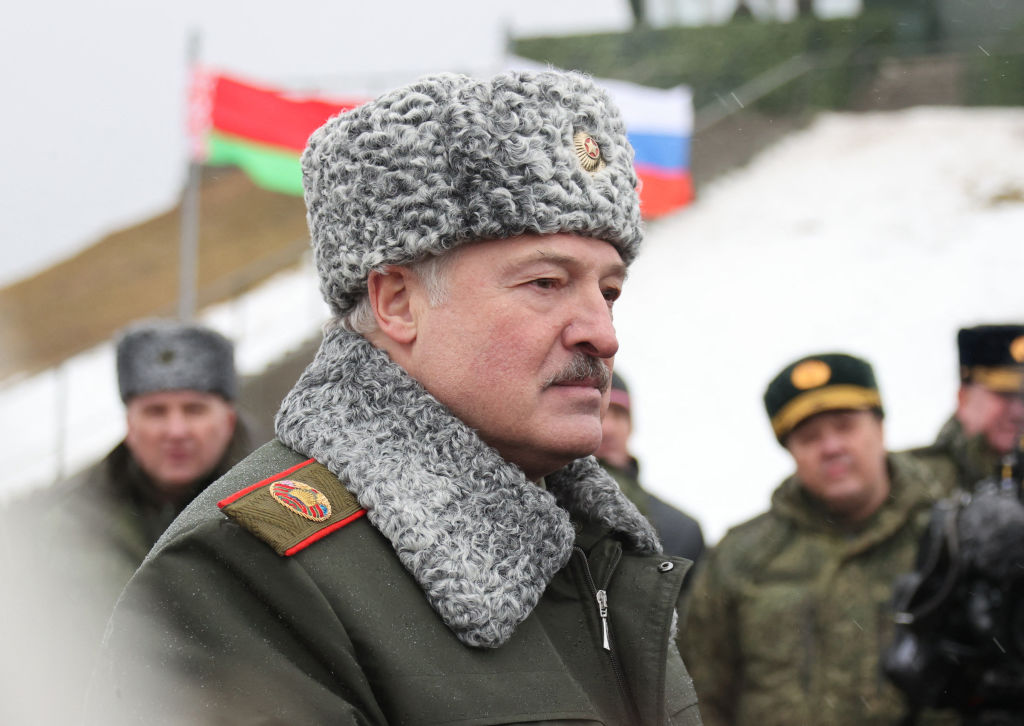Belarus Weekly: Swiss court acquits Belarusian ‘death squad’ member

Belarus plans a visit for foreign representatives to places where abducted Ukrainian children are held, in an attempt to evade complicity in Russia’s war against Ukraine.
Minsk claims again that a Polish helicopter violated its airspace, a claim Warsaw vehemently denies.
Belarusian authorities shut down the last officially registered opposition party in the lead-up to the 2024 parliamentary elections.
Russian and Belarusian athletes are given the green light to compete in the 2024 Paris Paralympics under a neutral flag in another controversial move by the international sporting community.
A Swiss court drops the charges against Belarusian “death squad” member Yury Harauski related to the forced disappearance of Lukashenko’s opponents in the late 1990s.
The Belarusian military conducts combat readiness inspections at Lukashenko’s request.
Swiss court acquits Belarusian ‘death squad’ member
A court in Switzerland on Sept. 28 cleared Yury Harauski of charges related to the disappearance and alleged murder of Lukashenko’s political opponents in 1999.
Harauski, a former member of Lukashenko’s special security forces known as the “death squad,” confessed to kidnapping former Interior Minister Yury Zakharanka, former Deputy Prime Minister Viktar Hanchar, and businessman Anatoly Krasouski, who disappeared between May and September 1999.
However, Harauski claimed he was not aware of his superiors’ intentions to kill the three men. He sought asylum in Switzerland in 2018, settling in St. Gallen, where the trial took place.
At the end of the two-day trial, Harauski was found not guilty of the kidnappings, as the court said his actual involvement in the disappearances “cannot be considered legally proven.”
The court said that, while it’s likely that he did serve in the “death squad,” his testimony casts doubt on whether or not he actually participated in the kidnappings or heard the details from other members.
The ruling also said Harauski “got confused in contradictions,” evaded questions, and was unable to explain the organizational structure of the Interior Ministry.
The court added that the Belarusian government’s role in the forced disappearances could not be proven beyond a reasonable doubt as it was not represented in the proceedings.
“For many years, we did not know what happened to my father,” Krasouski’s daughter, Valeryia Krasouskaya, said. “Four years ago, something seemed to become clear, but now, it turns out, it’s again in question.”
Attempts by the families to obtain information from Belarusian authorities about their victims’ whereabouts have been blocked, and Lukashenko has denied any involvement in the disappearances.
Belarus claims Polish helicopter violated its airspace, Warsaw denies
The Belarusian Defense Ministry claimed on Sept. 28 that a Polish helicopter violated its airspace, a claim Warsaw has vehemently denied.
According to Minsk, a Polish aircraft crossed into Belarus multiple times starting at around 3:20 p.m. and went up to 300 meters deep.
The Belarusian Foreign Ministry said it had summoned the Polish charge d’affaires, Marcin Wojciechowski, and demanded that Warsaw conduct “an objective investigation into the incident.”
The Polish military called Minsk’s claim false and that “no such event took place.”
“Information provided by the Belarusian regime’s media must always be approached with caution and prudence, as it has often been an element of provocation and disinformed the public.”
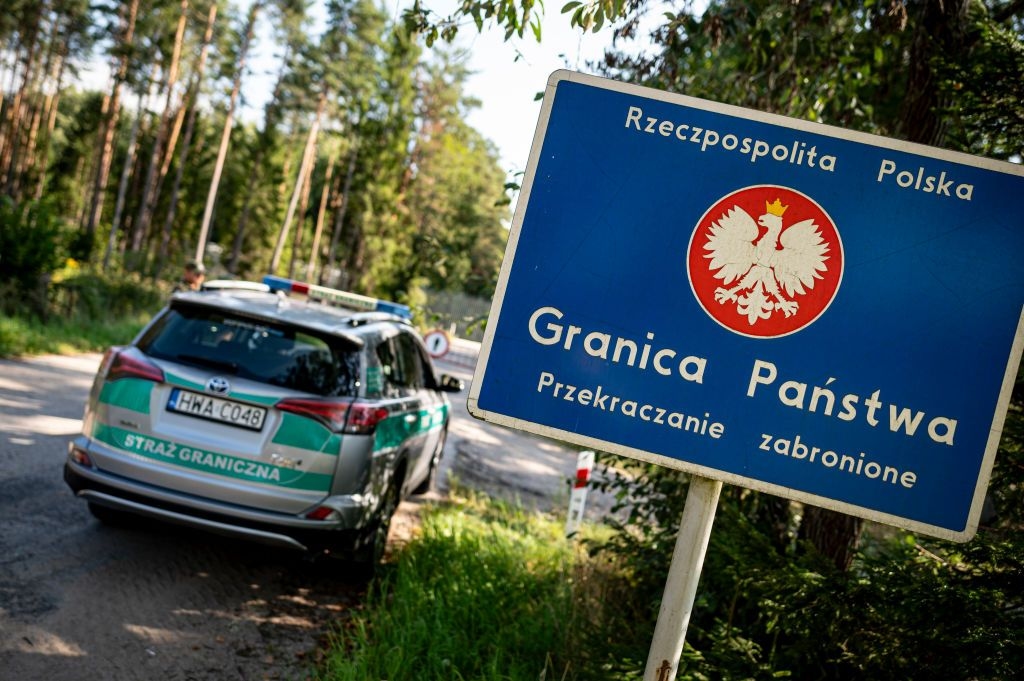
This marks the second time Minsk has accused Poland of violating its airspace. Belarus claimed a Polish military helicopter breached the border on Sept. 1, a claim Poland dismissed as false.
Polish Interior Minister Mariusz Kaminski suggested at the time that the accusation was a response to Warsaw’s report on Aug. 1 that two Belarusian helicopters violated Polish airspace during exercises near the border.
Tense relations between the two bordering nations are aggravated by Belarus’ complicity in Russia’s war against Ukraine, the artificial migration crisis orchestrated by Lukashenko’s regime, and the deployment of Wagner troops to Belarus.
EU and NATO members Poland, Latvia, and Lithuania, which all share borders with Belarus, have expressed growing concern over what they call growing provocations by Belarus.
Minsk says it showed abducted Ukrainian children to foreign diplomats
Belarus planned a visit for foreign representatives to locations where Ukrainian children taken from regions occupied by Russia are kept, the Ukrainian Foreign Ministry said on Sept. 30.
The ministry did not specify where the representatives will be from.
The visits reportedly took place on Oct. 4 at the so-called “places of residence, education, and rehabilitation” of Ukrainian children from the occupied cities of Lysychansk and Sievierodonetsk, in Luhansk Oblast.
“This measure aims to legalize the illegal movement of Ukrainian children from the temporarily occupied territories of Ukraine,” the ministry said, urging state representatives who have received invitations to refrain from participating.
“According to international law, the forced deportation of children can be qualified as a war crime,” the ministry added.
According to official estimates, Russia has abducted over 20,000 children from Russian-occupied parts of Ukraine, although the actual number is likely much higher.
Belarusian authorities have confirmed hosting over 1,000 of these children, claiming they have been relocated for “recreational programs,” a term falsely employed by both Moscow and Minsk to justify their abductions.
The head of the Belarusian branch of the Red Cross has also confirmed his organization’s involvement in abducting Ukrainian children.
The International Criminal Court (ICC) issued an arrest warrant for Russian President Vladimir Putin and Russian Children’s Rights Commissioner Maria Lvova-Belova for organizing the illegal transfers, and the European Parliament called on the ICC to issue a similar arrest warrant for Belarusian dictator Alexander Lukashenko.
Belarus shuts down last opposition party
Belarusian authorities shut down the “Fair World” political party on Sept. 27, effectively shutting down the last opposition party in Belarus.
The Belarusian Justice Ministry reportedly refused to renew the party’s registration amid Minsk’s ongoing crackdown on those who oppose Lukashenko’s regime ahead of the upcoming 2024 parliamentary elections.
These dissolutions are part of a string of opposition party shutdowns by Belarusian authorities in 2023, including the Belarusian Popular Front (BPF) and the United Civic Party.
The Belarusian parliament passed a bill in January imposing further restrictions on political parties’ creation and existence.
The bill raised the minimum number of political party members from 1,000 to 5,000 and required that political party founders be born and reside in Belarus.
Political parties can also be disbanded for promoting so-called “war propaganda,” “terrorist” and “extremist” activities, actions that “harm the state (or) public interests,” and the “reception of funds and other property from foreign sources.”
According to the 2022 Democracy Index, Belarus placed 153 out of 195 countries, ranking as one of the year’s “worst performers.”
Russians, Belarusians to compete in 2024 Paris Paralympics as neutrals
Russian and Belarusian para-athletes will be allowed to compete in the 2024 Paris Paralympics under a neutral flag after the International Paralympic Committee (IPC) voted against maintaining a complete ban.
While the Russian and Belarusian National Paralympic Committees (NPCs) will be suspended for two years due to “breaches of constitutional membership obligations,” their athletes will be permitted to participate in an “individual and neutral capacity.”
“IPC members voted 90-56 in favor of a motion to partially suspend NPC Russia (with six members abstaining),” the International Paralympic Committee said. “This decision was taken after members initially voted against a motion to fully suspend NPC Russia by 74-65 (with 13 abstentions).”
Seventy-nine members voted for a partial ban on Belarus, while 57 voted against or abstained.
Russia and its ally Belarus were fully suspended from paralympic competition after the full-scale war against Ukraine began in February 2022.
As Russia’s brutal and indiscriminate war against Ukraine continues, Kyiv has called on international sporting organizations to bar Russian and Belarusian athletes from participating in competitions.
In mid-July, the International Olympic Committee (IOC) announced it would not extend a formal invitation to the Russian and Belarusian national teams for the 2024 Olympic Games.
However, the IOC has not yet taken a decision on permitting them to compete as neutral athletes, with IOC President Thomas Bach saying they should not be penalized for the actions of their governments.
The Council of Europe urged the complete ban of Russian and Belarusian athletes from participating in the Olympics “as long as Russia’s war of aggression” against Ukraine continues.
Belarusian military conducts combat readiness inspections
The Belarusian military began combat readiness inspections at Lukashenko’s request, the Belarusian Defense Ministry reported on Oct. 3.
“The troops will march as soon as possible to the designated areas, followed by the performance of normative standards on the subjects of combat training,” the ministry said, without specifying when the exercises will end.
The inspections will reportedly involve military hardware and aviation in Belarus’ Minsk and Vitsebsk regions, focusing on the use of aviation to support ground forces.
Ukrainian Air Force spokesperson Yurii Ihnat said the inspections are not unusual, adding that “all air targets in Belarus are tracked.”
Ihnat noted, however, that Belarus is deploying troops to its southern border with Ukraine.
“Russia keeps (in Belarus) anti-aircraft missile systems, Iskanders, aircraft… This is all the front line. Anything can come from this front line,” he said.
The Belarusian military has conducted multiple combat readiness inspections since the start of Russia’s full-scale war against Ukraine, which Minsk openly supports.
In April, the inspections involved “verifying the credentials of those liable for military service,” sparking rumors about potential covert mobilization efforts in the country.
Zeltser's murder
The Spotlight segment provides readers with the historical context of contemporary events in Belarus.
Sept. 28 marked two years since IT employee Andrei Zeltser was shot and killed by Belarusian KGB officers during a raid of his apartment complex, sparking widespread backlash and mass arrests.
Belarusian KGB officers in civilian clothing reportedly demanded that 31-year-old Zeltser let them into the apartment building in an attempt to conduct a raid for so-called “terrorists,” a term often used by Belarusian authorities to describe those who oppose Lukashenko’s regime.
When Zeltser denied them entry, they pushed forward, prompting him to defend himself with a hunting rifle and fatally injuring a KGB officer. Zeltser, in turn, was shot dead.
In the days that followed Zeltser’s death, Belarusians flocked to social media in protest. Around 200 people were detained across the country for comments and posts related to his death.
After detentions that lasted over a month in very harsh conditions, 124 of those detained received prison sentences, and 35 were added to Belarus’ list of so-called “terrorists.”
Zeltser’s wife, Maryia Uspenskaya, who had managed to film the incident, was forced into psychiatric treatment.
Belarusian authorities also jailed journalist Henadz Mazheika for three years after he published an article about Zeltser that portrayed him in a positive light. Mazheika was charged with “inciting hostility and insulting a representative of the authorities.”
Meanwhile, Lukashenko’s regime declared Zeltser a so-called “terrorist,” instead organizing a memorial service for the killed KGB officer.



